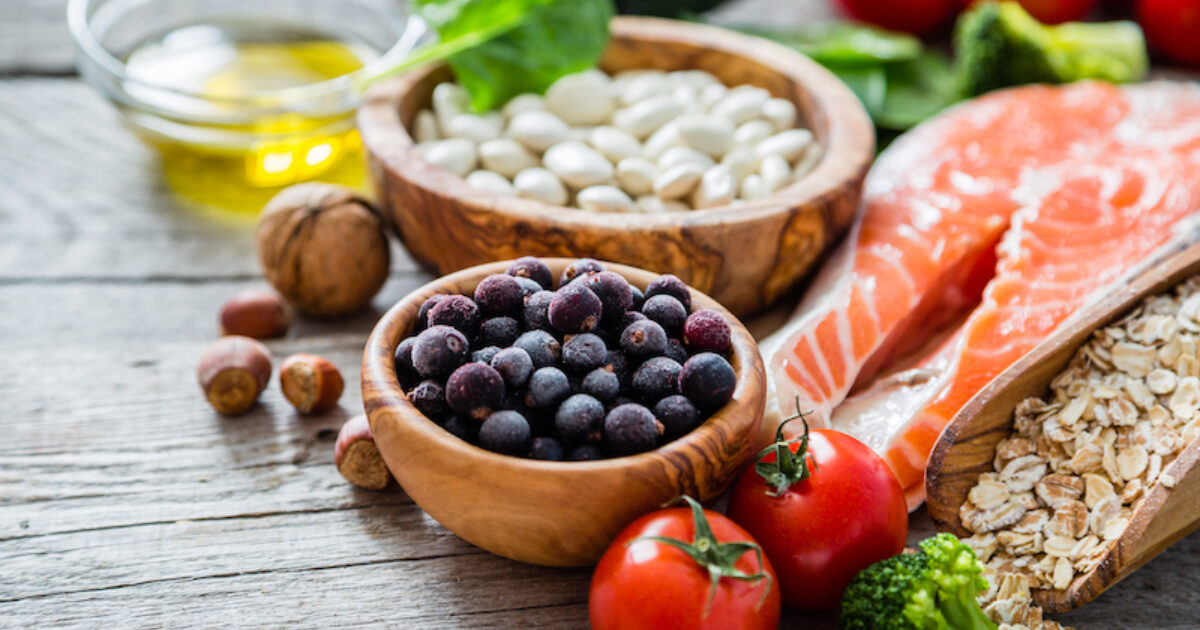#foods #heart #healthy
“As the evidence emerges, the link between diet and heart disease grows stronger“– Paul Ebeling
So, what we put on the plate influences just about every aspect of heart health, from blood pressure and inflammation to cholesterol levels and triglycerides.
Including the heart-healthy foods listed below are nutritious for a well-balanced diet that will help keep our hearts in good shape and minimize the risk of heart disease.
Here is my list of heart healthy foods to eat daily, as follows:
Almonds
Almonds are incredibly nutrient-dense, boasting a long list of vitamins and minerals that are crucial to heart health.
They’re also a good source of heart-healthy monounsaturated fats and fiber, two important nutrients that can help protect against heart disease (47Trusted Source).
Research suggests that eating almonds can have a powerful effect on your cholesterol levels, too.
Avocados
Avocados are an excellent source of heart-healthy monounsaturated fats, which have been linked to reduced levels of cholesterol and a lower risk of heart disease.
One study looked at the effects of three cholesterol-lowering diets in 45 overweight and obese people, with one of the test groups consuming one avocado per day.
The avocado group experienced reductions in “bad” LDL cholesterol, including lower levels of small, dense LDL cholesterol, which are believed to significantly raise the risk of heart disease.
Berries
Organic blueberries, blackberries, raspberries and strawberries are packed with important nutrients that play a Key role in heart health.
Berries are also rich in antioxidants like anthocyanins, which protect against the oxidative stress and inflammation that contribute to the development of heart disease.
Studies show that eating lots of berries can reduce several risk factors for heart disease.
For example, 1 study in 27 adults with metabolic syndrome showed that drinking a beverage made of freeze-dried strawberries daily for 8 wks decreased “bad” LDL cholesterol by 11%
Dark Chocolate
Dark chocolate is rich in antioxidants like flavonoids, which can help boost heart health.
Interestingly, several studies have associated eating chocolate with a lower risk of heart disease.
One large study showed that those who ate chocolate at least five times per week had a 57% lower risk of coronary heart disease than non-chocolate eaters
Another study found that eating chocolate at least 2X per wk was associated with a 32% lower risk of having calcified plaque in the arteries.
Fatty Fish
Fatty fish like salmon, mackerel, sardines and tuna are loaded with omega-3 fatty acids, which have been studied extensively for their heart-health benefits.
In 1 study in 324 people, eating salmon 3X a wk for 8 wks significantly decreased diastolic blood pressure.
Another study showed that eating fish over the long term was linked to lower levels of total cholesterol, blood triglycerides, fasting blood sugar and systolic blood pressure.
Additionally, each 3.5oz (100-gm) decrease in weekly fish consumption was associated with a 19% higher likelihood of having one additional risk factor for heart disease, such as high blood pressure, diabetes or obesity.
Garlic
For centuries, garlic has been used as a natural remedy to treat a variety of ailments.
In recent yrs, research has confirmed its potent medicinal properties and found that garlic can even help improve heart health.
This is thanks to the presence of a compound called allicin, which is believed to have a multitude of therapeutic effects
Olive Oil
A staple in the Mediterranean diet, the heart-healthy benefits of olive oil are well documented.
Olive oil is packed with antioxidants, which can relieve inflammation and decrease the risk of chronic disease.
It’s also rich in monounsaturated fatty acids, and many studies have associated it with improvements in heart health.
In fact, one study in 7,216 adults at high risk for heart disease showed that those who consumed the most olive oil had a 35% lower risk of developing heart disease.
Furthermore, a higher intake of olive oil was associated with a 48% lower risk of dying from heart disease.
Seeds
Chia seeds, flaxseeds and hemp seeds are all great sources of heart-healthy nutrients, including fiber and omega-3 fatty acids.
Numerous studies have found that adding these types of seeds to your diet can improve many heart disease risk factors, including inflammation, blood pressure, cholesterol and triglycerides.
For example, hemp seeds are high in arginine, an amino acid that has been associated with reduced blood levels of certain inflammatory markers.
Plus, flaxseed may help keep blood pressure and cholesterol levels under control.
Tomatoes
Tomatoes are loaded with lycopene, a natural plant pigment with powerful antioxidant properties.
Antioxidants help neutralize harmful free radicals, preventing oxidative damage and inflammation, both of which can contribute to heart disease.
Low blood levels of lycopene are linked to an increased risk of heart attack and stroke.
One review of 25 studies showed that a high intake of foods rich in lycopene was associated with a reduced risk of heart disease and stroke.
Whole Grains
Whole grains include all three nutrient-rich parts of the grain: germ, endosperm and bran.
Common types of whole grains include whole wheat, brown rice, oats, rye, barley, buckwheat and quinoa.
Compared to refined grains, whole grains are higher in fiber, which may help reduce “bad” LDL cholesterol and decrease the risk of heart disease.
Multiple studies have found that including more whole grains in your diet can benefit your heart health.
One analysis of 45 studies concluded that eating 3 more servings of whole grains daily was associated with a 22% lower risk of heart disease
Eat healthy, Be healthy, Live lively









